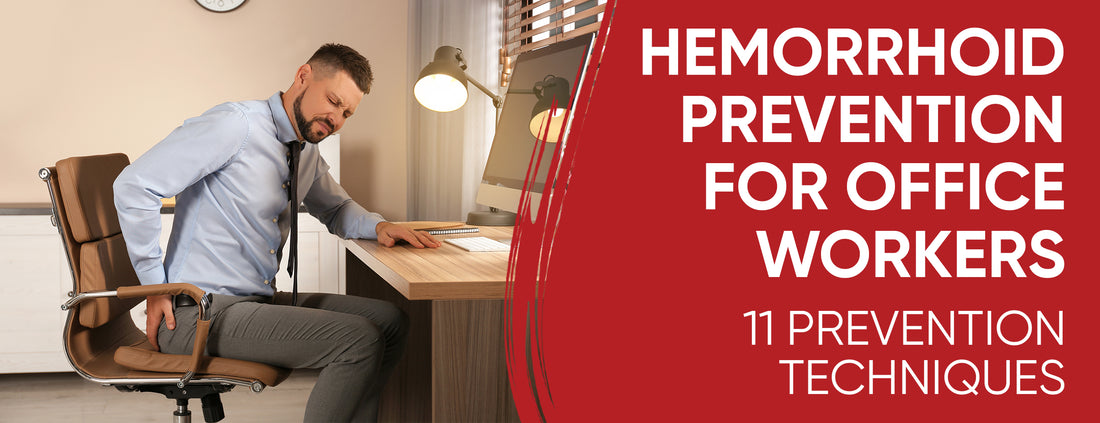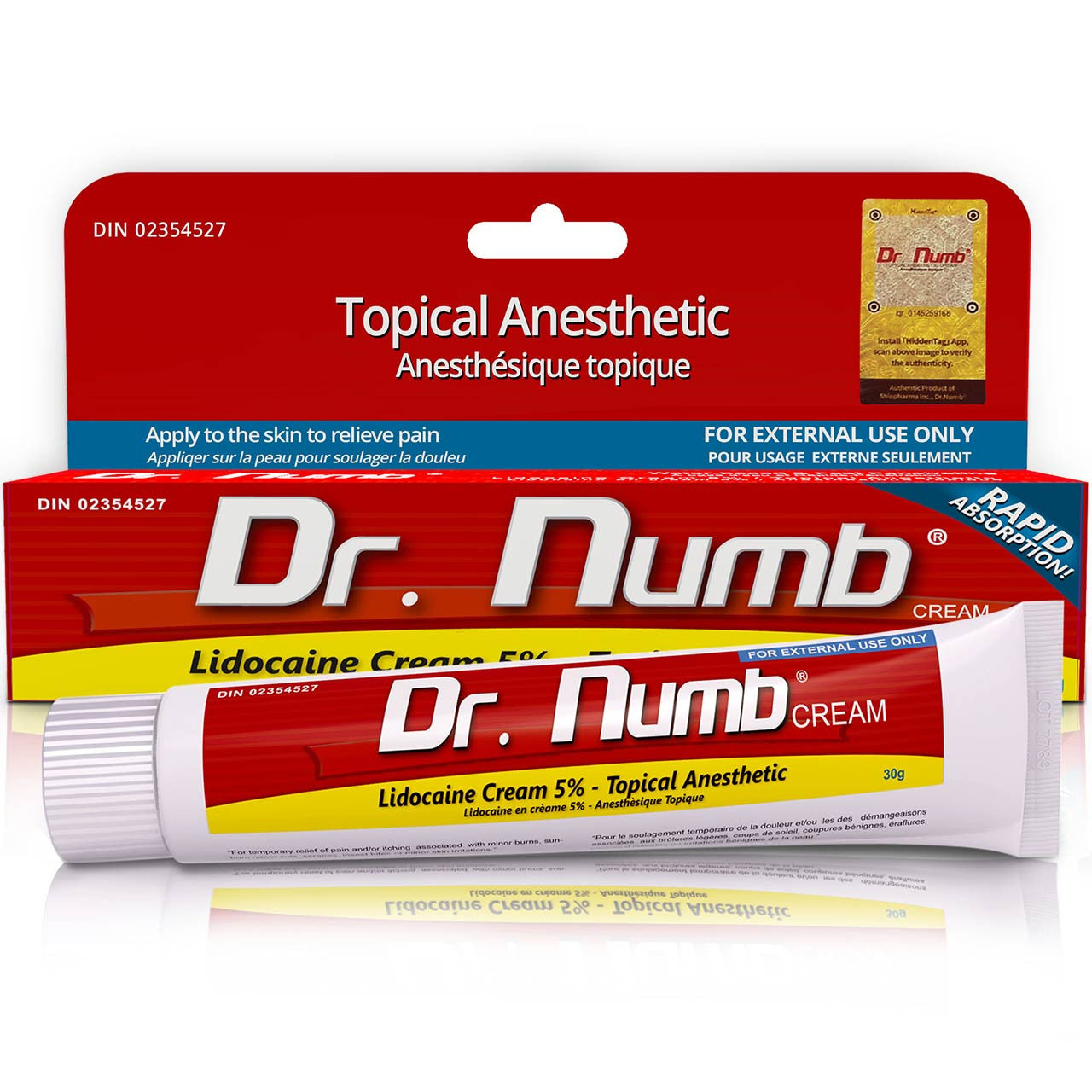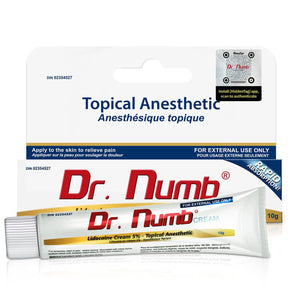Hemorrhoids in office workers are mainly due to the stationary desk job lifestyle. Poor toilet habits, a lack of exercise, and dehydration, coupled with long hours of sitting at a desk, can put a lot of pressure on the veins in the rectum and anus, leading to hemorrhoids.
To prevent hemorrhoids, office workers can benefit from using a donut-shaped pillow as a seat cushion. These specially designed pillows provide comfort and alleviate pressure on the anus, promoting overall well-being during prolonged sitting at a desk.
In this blog post, let's delve into some healthy coping strategies for desk workers. We'll discuss the causes of hemorrhoids and prevention strategies to reduce their risk.
Hemorrhoid Prevention for Office Workers: Healthy Coping Strategies

Workplace comfort is often an issue for office workers due to the common causes of hemorrhoids. The guide offers preventative techniques and coping strategies for hemorrhoids during business trips. Let's discover practical tips and solutions to enhance comfort and ensure a healthier work environment for office workers.
Hemorrhoid for Office Workers: Prevention Techniques
Office workers can minimize the risk of developing hemorrhoids with a few preventive measures. We will provide practical steps office workers can take to prevent hemorrhoids.

Lifestyle modification for improving workplace comfort
When it comes to preventing workplace discomfort, making lifestyle modifications is critical. Here are some simple yet effective techniques that you can implement to ensure your body stays comfortable while you work:
- Proper Diet: Eating a balanced diet rich in fiber can help improve your digestive health, preventing issues such as constipation that can lead to discomfort during extended periods of sitting.
- Hydration: Ensuring you drink enough water throughout the day can help prevent dehydration, which can cause fatigue, headaches, and muscle cramps, hindering your comfort while working.
- Improved Hygiene: Proper hygiene practices such as regular hand washing and cleaning your work surfaces can help prevent the spread of germs in your workspace, reducing the risk of illness that can cause discomfort.
- Toilet Habits: Ensuring proper toilet habits, such as not holding in urine and taking regular restroom breaks, can help prevent urinary tract infections that can cause discomfort.
- Light Exercises: Adding some light exercises to your daily routine, such as stretching, walking, or doing yoga, can help prevent stiffness and alleviate joint pain that can arise from sitting in one position for long periods.

Modification of Workplace
Modifying your workspace can reduce discomfort and promote better overall health. Here are some workplace modifications you can implement to improve your comfort:
- Ergonomic Furniture: Investing in ergonomic furniture, such as a supportive chair and a desk that adjusts to the proper height, can help ensure your body is in the correct position. At the same time, you work, reducing pain and discomfort.
- An appropriate chair: Sitting on a chair that does not support your lower back can contribute to hemorrhoids. Invest in a chair with lumbar support to maintain proper posture and reduce the pressure on your anus and rectum.
- Correct desk height: Your desk and chair should be adjusted to ensure that your knees are at a 90-degree angle and your feet are flat on the floor. This posture improves blood flow and makes it easier for you to take deep breaths, which keeps the blood vessels in your anus and rectum from swelling.
- Taking Breaks: Frequent breaks throughout the day help reduce discomfort caused by sitting for extended periods. Take short breaks to stand up, stretch or take a quick walk around the office.
- Proper Posture: Proper posture while you work can help prevent strain and alleviate discomfort in your head, neck, and back. When you sit at your desk, keep your feet flat on the ground, your back straight, and your shoulders relaxed.
- Alternating Work Positions: Changing the position in which you work reduces strain on specific muscles and joints. Office workers can alternate between sitting and standing or using a sit-stand desk.
Using these prevention techniques will reduce discomfort and promote better health at work. Don't let a lack of comfort negatively affect your work performance or overall health. Now is the time to take the necessary steps to ensure your comfort.
Office Worker's Hemorrhoids: Common Causes

There are several reasons why office workers get hemorrhoids, and understanding these causes can help prevent this condition. Here are the leading reasons for hemorrhoids in office workers:
Prolonged Sitting
Sitting for extended periods can stress abdominal veins, leading to the development of hemorrhoids. Unfortunately, this is common in many office jobs where employees sit for hours.
Lack of Physical Activity
A sedentary lifestyle, with no regular exercise or movement, can also contribute to hemorrhoids. Exercise helps to improve blood flow to the anal area, reducing the risk of hemorrhoids.
Poor Diet
A diet low in fiber and high in processed foods can worsen hemorrhoids. Fiber helps to soften stools, making them easier to pass and reducing the risk of constipation, which can cause hemorrhoids.

Dehydration
Not drinking enough water can lead to constipation, a primary cause of hemorrhoids. Staying hydrated throughout the day is essential, especially when working in an office environment.
Straining during Bowel Movements
Straining to pass stools can cause veins in the lower abdomen to become inflamed, leading to hemorrhoids. This can occur when constipated or using the wrong technique while on the toilet.
Pregnancy
Pregnant women are more likely to develop hemorrhoids due to the increased vein pressure in the pelvic area. This is due to the baby's growing weight and changes in hormone levels.
Stressful Work Environment
A highly stressful work environment can cause an increase in the release of stress hormones, which can affect the digestive system. This can lead to constipation and other digestive issues, which can cause hemorrhoids.
Improper Posture
Sitting in a non-ergonomic chair or sitting with poor posture can put additional strain on the rectal area, resulting in hemorrhoids.
Poor Bathroom Habits

Poor bathroom habits can significantly increase the risk of hemorrhoids in office workers. Straining excessively during bowel movements and using harsh toilet paper can strain the rectal veins unnecessarily. To prevent this, using gentle and moistened toilet paper and developing good bowel habits, such as not delaying bowel movements, is essential.
Hemorrhoids can be prevented by maintaining a healthy lifestyle, including a fiber-rich diet, regular exercise, staying hydrated, and taking breaks from prolonged sitting. It is possible to prevent hemorrhoids, improve our overall health, and prevent the discomfort and inconvenience caused by hemorrhoids by caring for our bodies.
Dealing with Hemorrhoids: Traveling for Business Trips
Traveling for business trips can be stressful, especially if you suffer from the discomfort of hemorrhoids. We are discussing how to cope with hemorrhoids while traveling for business trips.
Preparation Before Traveling
- Especially if you have a chronic condition, consult your physician before traveling.
- Pack your medications and supplies, such as ointments, wipes, and pain relievers.
- Make a plan for your trip, including restroom breaks, meals, and activities.

During the Flight
- For easy access to the restroom, choose an aisle seat.
- Increase blood flow by standing up and moving around frequently.
- Reduce pressure on the hemorrhoids with a travel pillow or cushion.
- Drinking alcohol can cause dehydration and constipation.
In the Hotel Room
- Choose a hotel with an adjustable headrest and a comfortable bed.
- To reduce inflammation, apply a hot or cold compress to the hemorrhoids.
- Take a warm bath to relieve pain and promote healing.
- Using the toilet while squatting or standing can help reduce strain on hemorrhoids.
At Meetings and Events

- Avoid tight clothing that can irritate hemorrhoids by dressing comfortably.
- Move around during breaks to improve blood flow.
- Reduce pressure on hemorrhoids using a cushion or foam ring on the chair.
- Avoid spicy and greasy foods that can aggravate symptoms.
Office workers can cope with hemorrhoids on business trips with proper preparation and self-care.

Conclusion
Office workers often suffer from hemorrhoids, but they can be prevented with simple lifestyle and workspace changes. The solution to hemorrhoids can be as simple as eating a balanced diet, staying hydrated, and exercising for 30 minutes a day. Taking breaks and modifying your workspace can also help prevent hemorrhoids.
There are coping strategies and pain management options available if you have hemorrhoids. Keeping hemorrhoids at bay and staying comfortable and healthy while working at a desk is possible with the proper preventative measures and coping techniques.




















